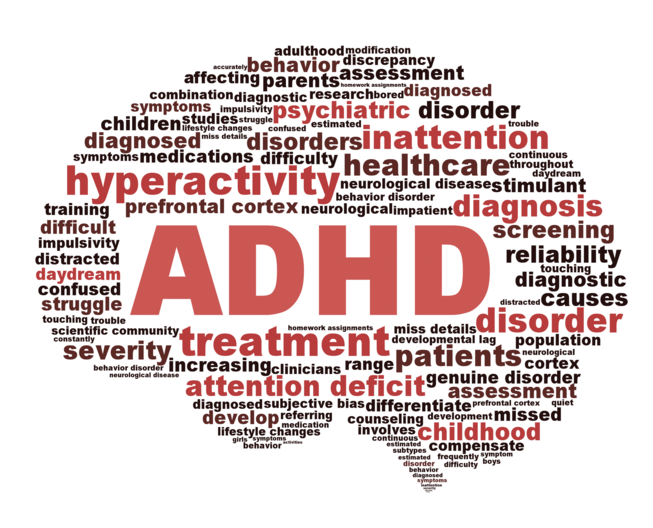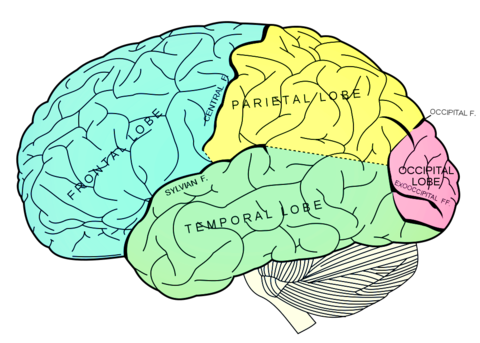Omega-3 is crucial to developing a healthy brain and maintaining one. A deficiency of these fatty acids can contribute to neurological issues, such as ADHD. The exact effect of omega-3 fish oil in the treatment of ADHD types is not completely known and more research is needed but it has shown a large potential to be a safe and natural aid in battling the disorder and lessening the severity of the symptoms. Read more to find out the relation between Omega-3 and ADHD.
What is ADHD?
Attention-deficit Hyperactivity Disorder (ADHD) affects roughly 3% to 5% of children and 4% of adults in the U.S. While it is often regarded as an American disorder, these statistics have been shown to be accurate on a global scale as well. With the disorder getting so much attention in recent years, many people already know the basic symptoms of being unable to concentrate or being overly hyper. However, the disorder does have variations and each has its own distinct set of symptoms.
There Are Three Types of ADHD
Predominantly Inattentive
This type is characterized by the inability to pay attention or follow instructions without difficulty. People with this type often have trouble focusing or completing a task because they are easily distracted. Oftentimes, they are also prone to forgetting routines. For children, this affects how well they do in school and it’s not uncommon for homework to be incomplete or for class lessons to not be fully understood due to the child not being able to pay attention to them.
Predominately Hyperactive/Impulsive
Those with ADHD that have difficulty keeping a routine sleeping schedule or sitting still for long periods of time usually have this type. The impulsiveness also has an impact on social life because people with Hyperactive/Impulsive ADHD may say things deemed inappropriate and tend to interrupt others. Children with this type can have problems interacting with peers in school and will often get in trouble for being disruptive in class.
Combined Type
This type is a combination of the other two. While someone with a combined ADHD type may not have all the symptoms of the other two types, they will display at least one symptom of both types.
What Causes ADHD?
The causes of ADHD are not fully known but the main suspects are genetics, lead exposure, and diet.
Genetics is a suggested cause but currently, a solid link between genetic inheritance and ADHD has not been found. As far as lead exposure is concerned, many places have already taken the initiative to remove lead paint from their buildings. So, there isn’t much that can be done about those two possible causes.
Diet, on the other hand, can be controlled and influence the disorder. It was once thought that sugar consumption in children resulted in ADHD but years of the medical community conducting research has yet to result in any link being proven between sugar and ADHD.
However, the research has pointed to another dietary factor that may play a significant role: omega-3 deficiency.

What’s the Relation Between Omega-3 and ADHD?
Omega-3 has long been known as a crucial component of brain development and maintaining a healthy brain. The brain is composed predominantly of fatty acids and the most abundant of those fatty acids is an omega-3 called docosahexaenoic acid or DHA. The majority of the DHA concentration is in the gray matter, which controls the thinking processes and how a person responds to the things around them.
Children with ADHD have been shown to have less gray matter, as well as thinner brain tissue, than those without the disorder. Within studies, it was observed that children who received omega-3 through their mothers during pregnancy and right after birth had lower risks for developing ADHD. This suggests that a high-quality omega-3 supplement may help prevent the formation of ADHD by supplying the DHA that is needed as a building block to form a healthy brain.
In those that have already developed the disorder, a deficiency of omega-3 may worsen the symptoms. In a 1996 study, it was observed that the children with the highest frequency of ADHD symptoms had lower levels of omega-3 than those with less severe symptoms. When doses of omega-3 were given, as was done in studies conducted in 2007 and 2008, the ADHD symptoms improved. The 2007 study involved children between the ages of 7 and 12 and was held for 15 weeks. In contrast to the placebo group, the children given omega-3 showed improvement.
What Type of ADHD Can Benefit from Omega 3?
The type of ADHD that is affected more by omega-3 fish oil isn’t known completely and was brought into question by the 2008 study. Here, there was a 25% reduction of symptoms after six months but only children with the predominantly inattentive type appeared to respond to the omega-3 treatment.
A preliminary study in 2015 also showed an improvement in symptoms with omega-3 supplementation but it was not indicated that the beneficial effects of omega-3 were restricted to one type. While most of the studies suggest that all types are likely to respond to omega-3, more research is needed to determine exactly how each type is affected.
How Can Omega-3 Help With ADHD Treatment?
ADHD is treated with a combination of medications and behavioral therapy. The medications are mostly central nervous system stimulants and come with a list of side effects that include anxiety, difficulty sleeping, loss of appetite, stomach aches, and becoming withdrawn.
In contrast, fish oil and other omega-3 do not cause these types of side effects and are considered extremely safe to use. With continued research, omega-3 may become a healthier alternative in the treatment of ADHD. It is also safe to take in combination with the current treatment for the disorder and may aid in the effectiveness of those treatments due to the strong connection between omega-3 fatty acids and the brain.
References
Ajifo, A. (2014). Brain [Online image].Retrieved from URL (https://www.flickr.com/photos/125992663@N02/) Batty, M., Liddle, E., Pitiot, A., Toro, R., Groom, M., Scerif, G., . . . Hollis, C. (2010). Cortical Gray Matter in Attention-Deficit/Hyperactivity Disorder: A Structural Magnetic Resonance Imaging Study. Journal of the American Academy of Child & Adolescent Psychiatry, 49(3), 229-238. doi:10.1016/j.jaac.2009.11.008 Facts About ADHD. (2015, June 26). Retrieved July 25, 2015. Johnson, M., Ostlund, S., Fransson, G., Kadesjo, B., & Gillberg, C. (2009). Omega-3/Omega-6 Fatty Acids for Attention Deficit Hyperactivity Disorder: A Randomized Placebo-Controlled Trial in Children and Adolescents. Journal of Attention Disorders, 394-401. Retrieved July 25, 2015, from http://jad.sagepub.com/content/early/2008/04/30/1087054708316261.short Mcnamara, R., & Carlson, S. (2006). Role of omega-3 fatty acids in brain development and function: Potential implications for the pathogenesis and prevention of psychopathology. Prostaglandins, Leukotrienes and Essential Fatty Acids, 75(4-5), 329-349. Retrieved July 25, 2015, from http://www.plefa.com/article/S0952-3278(06)00125-6/fulltext Richardson, A. (n.d.). Omega-3 fatty acids in ADHD and related neurodevelopmental disorders. International Review of Psychiatry Int Rev Psychiatry, 18(2), 155-172. Retrieved July 25, 2015, from http://www.tandfonline.com/doi/abs/10.1080/09540260600583031#.VbZIyPlVikp Singh, M. (2005). Essential fatty acids, DHA and human brain. Indian J Pediatr The Indian Journal of Pediatrics, 72(3), 239-242. Retrieved July 25, 2015, from http://link.springer.com/article/10.1007/BF02859265 Sinn, N., & Bryan, J. (2007). Effect of Supplementation with Polyunsaturated Fatty Acids and Micronutrients on Learning and Behavior Problems Associated with Child ADHD. Journal of Developmental & Behavioral Pediatrics, 28(2), 82-91. Retrieved July 25, 2015, from http://journals.lww.com/jrnldbp/Abstract/2007/04000/Effect_of_Supplementation_with_Polyunsaturated.2.aspx Steven, F., Joseph, S., Christopher, G., & Joseph, B. (2003). The worldwide prevalence of ADHD: Is it an American condition? World Psychiatry, 2(2), 104–113-104–113. Retrieved from NCBI. Stevens, L. (1996). Omega-3 fatty acids in boys with behavior, learning, and health problems. Physiology & Behavior, 59(4-5), 915-920. Retrieved July 25, 2015, from http://www.sciencedirect.com/science/article/pii/0031938495022074






